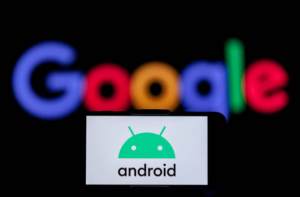
The next wave in personal computing is closer than many realize. Google is preparing to redefine the personal computing landscape with plans to merge Android and ChromeOS into a unified platform specifically for desktop computing, with the new Android-powered PC platform set to launch in 2026.
Announced during Qualcomm’s Snapdragon Summit 2025, Google said they plan to unify their mobile and PC platforms by merging Android and Chrome OS into a single underlying operating system foundation for PCs and mobile devices.
“We are building together a common technical foundation for our products on PCs and desktop computing systems,” Rick Osterloh, Google’s Senior Vice President of Devices and Services said at the Summit.
For years, ChromeOS has provided a lightweight desktop experience with deep Android-app integration, but those Android apps have run inside compatibility layers, an approach that although allows for easier updates but sometimes introduces extra overhead that can affect responsiveness.
With Google now confirming an Android-PC convergence slated for 2026, the tech giant aims to make Android the core desktop platform, promising a more unified app experience and fewer of the performance compromises that came from running mobile apps in layered environments.
More importantly, Google envisions Android serving users across all computing categories, which would effectively dissolve the traditional divide between separate mobile and PC operating systems.
The move aims to make laptops and other devices that fall under PCs work more seamlessly within the familiar ChromeOS productivity environment and the broader Android ecosystem with improved app integration and other AI enhancements.
Osterloh further described it as “building together a common technical foundation for our products on PCs and desktop computing systems” with the promise of Android serving all computing categories, including laptops.
In the middle of the upgrade and a crucial part of this Android-PC convergence lies Qualcomm’s latest Snapdragon X2 Elite processors. Also revealed at the Snapdragon Summit, these processors are expected to power both Android devices and PCs, as well as optimize performance and AI integration.
Excited for the Android-PC convergence, especially with Qualcomm’s chip in the middle of the project, Qualcomm’s CEO Christiano Amon added that, “I’ve seen it, it is incredible. It delivers on the vision of convergence of mobile and PC. I cannot wait to have one.”
Conversely, this strategic convergence and partnership with Qualcomm positions Google directly against Microsoft’s dominance in the personal computing space. Google aims to use the Android-PC platform to attract users by offering native Android app compatibility, which would in turn eliminate the performance limitations and offer an alternative to Microsoft’s Windows.
Redefining what users can expect from their computing devices, Google’s Android-PC convergence is expected to extend Android’s reach and also open new possibilities in productivity, gaming, and AI-assisted workflows.
The Android-PC convergence slated for 2026 further aligns with Qualcomm’s goal to achieve powerful new semiconductors, as well as Google’s broader vision of embedding AI deeply in every aspect of technology use.
The AI angle is integral to Google’s plans. The tech giant intends for the unified platform to harness its advanced AI stack, which includes the Gemini large language models and the famous Google Assistant. This will enable a more personalized, intelligent computing experience to PCs.
But will this be enough to unseat Windows or lure millions of users to switch? That remains to be seen. For now, what remains clear is that Google is betting big on convergence, AI integration, and hardware partnerships to shape the future of personal computing.

